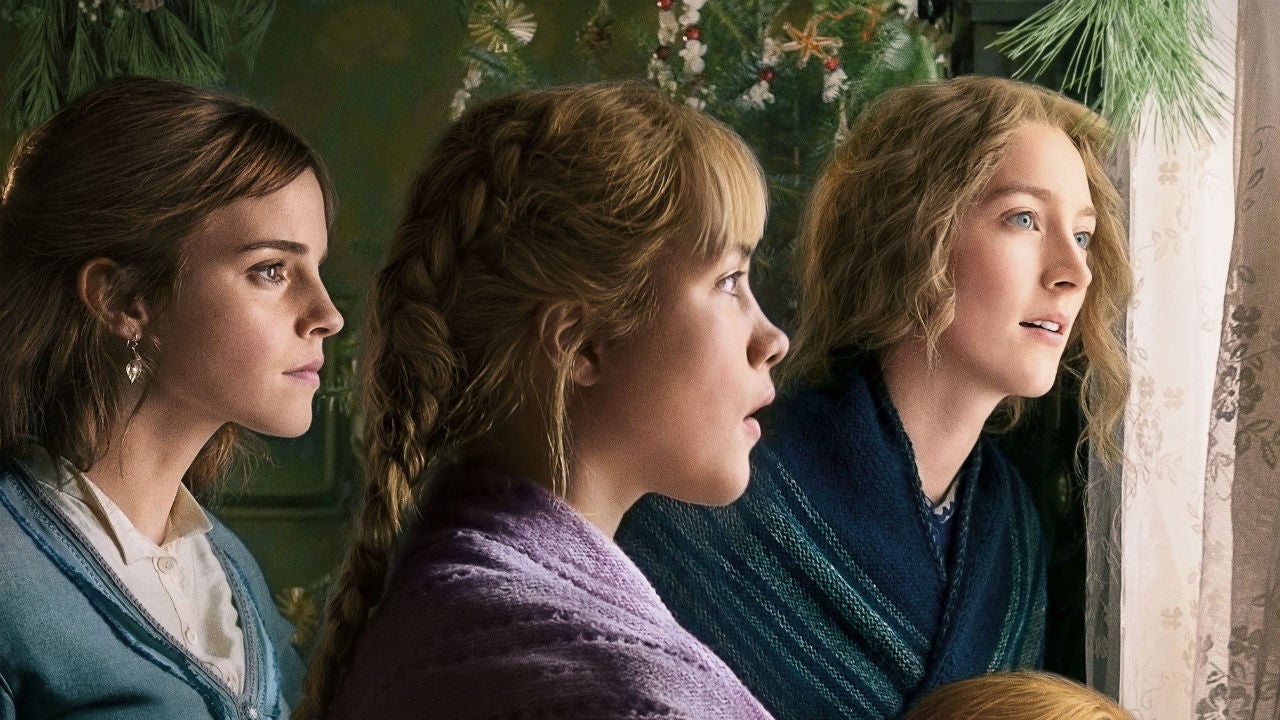Little Women is the charmingly intimate tale of the four March sisters, Jo (Saoirse Ronan), Meg (Emma Watson), Amy (Florence Pugh) and Beth (Eliza Scanlen). The intersecting timelines fragment their lives into pockets of golden tinted childhood memories and current-day economic woes tied to marital mayhem. Nevertheless, their mother Marmee (Laura Dern) is the glue that binds them, using the backdrop of the civil war to remind the girls they must sacrifice what they have for those who have less, like their father (Bob Odenkirk) who left them to serve his country.
The film is as aesthetic as it is emblematic, the attention to set and costume immerses you in the depths of Louisa May Alcott’s imagination and sits you in the corner with the dutiful Meg as you watch Beth on the piano, Jo at her desk or Amy making a cast of her ‘perfect feet’ for Laurie. Theodore ‘Laurie’ Lawrence (Timothée Chalamet) is the grandson of Mr Lawrence (Chris Cooper) and the idyllically mischievous boy next door very few of us ever got. Greta’s directing and the relationships between the actors embedded Chalamet into the sister’s fold in the most endearing way, sewn into the fabric of the March family like a square of patchwork, a comfort for Jo or Amy when their hearts needed it, or a layer for Meg and Beth to shield them from the harsh trials of patriarchal America.
The Parisian storyline was led by the iconic Meryl Streep as the spine shriveling Aunt March, a woman of money and manners who demands the same for the girls. But with Beth’s charitable deeds leaving her sickly and Meg enthralled by the plainly perfect John Brooke (James Norton), there are only two girls left to mould. As Ronan artfully juggles the ‘New-Yorker’ Jo, the ‘Teacher’ Jo and the ‘Carer’ Jo, Pugh emerges as the archetypal American maiden, packed with beauty and the brains to bargain for marriage – ultimately to Jo’s childhood beau.
Gerwig is the mistress of crafted conversational chaos, managing to script all the vocal volatility of sibling arguments with the demure guise of normality. The film is a nostalgic and homely glimpse into the glorious every day of sisterhood, of family and of fervent friendships as adulthood rips you from sweet innocence. Saoirse Ronan’s performance is enduring, a true triumph for Alcott’s alter ego and a role model for anyone who watches and needs to remember that it’s better to be ‘a spinster and paddle my own canoe’ than love for the sake of evading loneliness. But it’s her reading of George Eliot’s The Mill on the Floss on a calm coastline that capsulizes the film’s core sentiment; ‘We could never have loved the earth so well if we had had no childhood in it’. For weren’t we all once young and hopeful with the very same golden glow?
Photo Credit: Polygon

